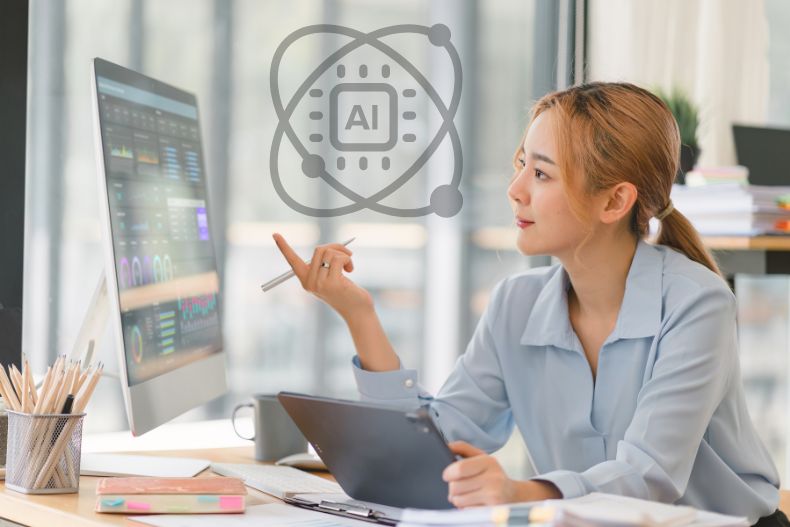You don’t have to be a generative AI “true believer” to appreciate this powerful technology’s potential to change the way we live and work. You can already see it happening all around you. The real questions you should be asking are about the speed and scale of the disruption rather than whether it will occur in the first place.
One discipline where generative AI’s disruptive potential is crystal clear is talent management. If you’re a corporate HR professional, manager or executive with teams reporting directly to you, or rank-and-file employee trying to navigate a rapidly changing work environment, you need to understand what’s happening right now — and what changes could be right around the corner.
AI experts like Nygina Mills, a Harvard-trained executive and regulatory specialist who has spent decades advancing organizations’ understanding of best practices around emerging technologies, are working tirelessly to reimagine talent management in an AI future. Here’s how they see the current state of play and how they think organizations can prepare for what’s next.

1. Implement Automated HR Processes Where Possible
Powerful HR automation tools can already take on much of the repetitive work traditionally performed by humans.
Examples of HR and HR-related functions that can be partially or fully automated include document delivery and receipt, benefits elections and updates, and time-off requests. Functions that can’t be fully automated with present technology may be augmented with the use of custom generative AI instances, such as chatbots or information resources built around specific employee needs.
2. Offer “Self-Service” HR Management Tools
One type of HR automation that doesn’t necessarily require cutting-edge generative AI tools can broadly be described as “self-service.” Many HR platforms already allow employees to manage relatively simple HR tasks, such as requesting vacation time or updating their retirement account allocations, without engaging a human HR professional or their manager. HR leaders and C-level executives should regularly survey the self-service landscape to ensure their organizations use all available technologies to their benefit.
3. Empower Employees to Make Their Own Decisions Around Benefits
HR self-service tools can’t yet automate the process of enrolling in a health insurance plan, making initial retirement portfolio selections, or choosing optional “fringe” benefits. These still require some degree of interaction with human HR representatives.
However, while taking care to meet all applicable regulatory and compliance obligations, organizations and their leaders should investigate opportunities to use generative AI to educate employees about their options, the implications of benefits-election choices, and the details of each plan or allocation.
Gen AI can also simplify the decision-making process for employees who need more help by delivering customized, interactive plain English guidance. Human representatives may still need to stand by and step in from time to time, but this approach automates much of the “usual” work.
4. Understand How Each Employee Prefers to Be Managed (And Honor Those Preferences)
A “my way or the highway” approach to talent management no longer flies. This is especially true for younger workers, many of whom set firm boundaries between their professional and personal lives. Difficult as it may be for talent managers to accept, these workers may actually prefer to interact with gen AI “managers,” at least for routine needs.
5. Iterate Meeting Schedules and Formats
Employees’ changing preferences around talent management extend to what was once a mainstay of corporate organizations: the meeting. Increasingly, talent managers are taking an “essential meetings only” posture and relying on generative AI tools to engage with employees outside these rather infrequent gatherings. Leaders not yet comfortable with such a dramatic shift may wish to iterate meeting lengths, schedules, and formats to determine what works best for their teams.
Final Thoughts
Will there always be a place for human talent managers in a future enabled — and perhaps dominated — by AI?
No one really knows the answer to this question. Even experts can only guess at what the future might look like.
But we do know that AI will play an increasingly pivotal role in the workplace. Inevitably, it will also play a more central role in how humans manage other humans. Over time, it may take over some of those management responsibilities. How fast is anyone’s guess.
Whether you’re a leader or member of the rank and file within your organization, do your best to advance your understanding of the generative (and non-generative) systems that support your work. The more you know, the less likely it is you’ll be blindsided by truly disruptive developments.